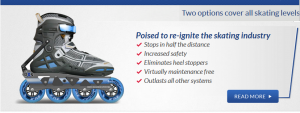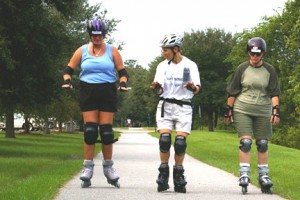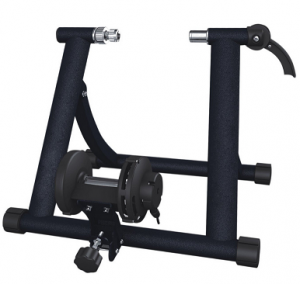
After 20 years as a formal publication and the voice of Get Rolling, the quarterly Get Rolling Orbit Inline Skating Newsletter is going into quiet retirement.
What does this mean?
- There will be no more mailing list and no more email announcements.
- People who follow Get Rolling with Liz Miller on Facebook or Sk8teacher on Twitter will continue to have access to my posts there.
- Orbit archives prior to May 2010 (when I started using WordPress) will still be available on GetRolling.com.


